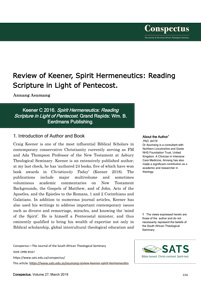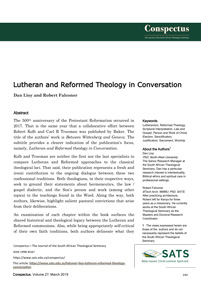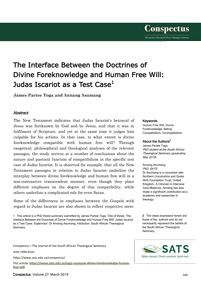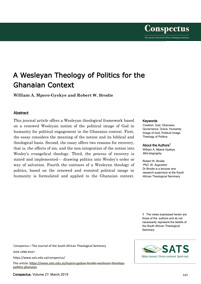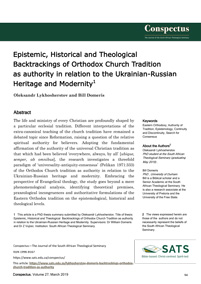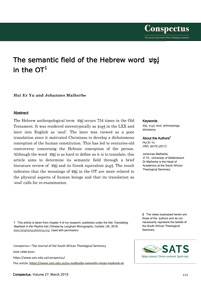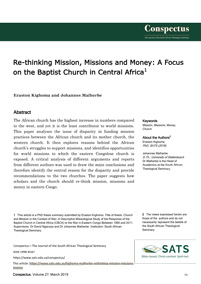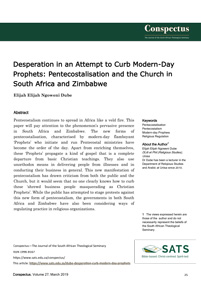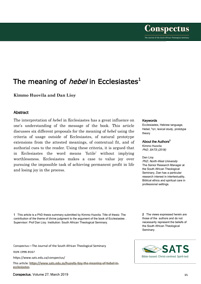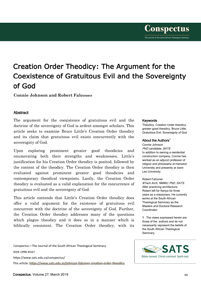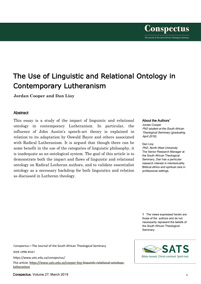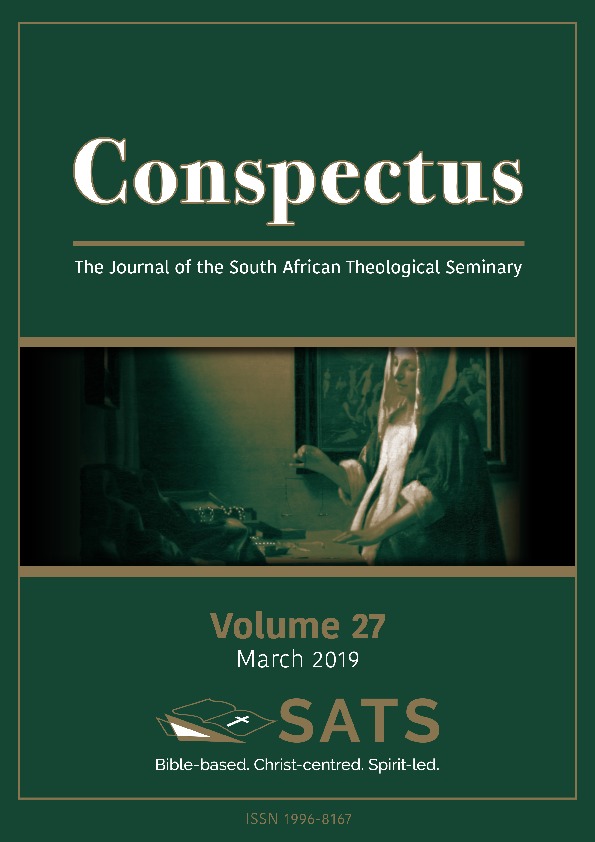Review of Keener, Spirit Hermeneutics: Reading Scripture in Light of Pentecost
Asumang A 2019. Review of Keener, Spirit Hermeneutics: Reading Scripture in Light of Pentecost. Conspectus 27, p. 224-233.
Lutheran and Reformed Theology in Conversation
Lioy D and Falconer R 2019. Lutheran and Reformed theology in conversation. Conspectus 27, p. 192-223.
The Axiology of Qohelet and Life ‘Under the Sun’: What is Good for Us to Do?
Joubert C 2019. The axiology of Qohelet and life ‘under the sun’: what is good for us to do? Conspectus 27, p. 173-191.
The Interface Between the Doctrines of Divine Foreknowledge and Human Free Will: Judas Iscariot as a Test Case
Toga JP and Asumang A 2019. The interface between the doctrines of divine foreknowledge and human free will: Judas Iscariot as a test case. Conspectus 27, p. 160-172.
A Wesleyan Theology of Politics for the Ghanaian Context
Mpere-Gyekye WA and Brodie RW 2019. A Wesleyan theology of politics for the Ghanaian context. Conspectus 27, p. 142-159.
Epistemic, Historical and Theological Backtrackings of Orthodox Church Tradition as authority in relation to the Ukrainian-Russian Heritage and Modernity
Lykhosherstov O and Domeris B 2019. Epistemic, historical and theological backtrackings of Orthodox Church tradition as authority in relation to the Ukrainian-Russian heritage and modernity. Conspectus 27, p. 94-112.
The semantic field of the Hebrew word נֶֶ֫פֶשׁ in the OT
Yu HE and Malherbe J 2019. The semantic field of the Hebrew word נֶֶ֫פֶשׁ in the OT. Conspectus 27, p. 113-141.
Re-thinking Mission, Missions and Money: A Focus on the Baptist Church in Central Africa
Kighoma E, Ngaruiya D and Malherbe J 2019. Re-thinking mission, missions and money: a focus on the Baptist Church in Central Africa. Conspectus 27, p. 71-93.
Desperation in an Attempt to Curb Modern-Day Prophets: Pentecostalisation and the Church in South Africa and Zimbabwe
Dube EEN 2019. Desperation in an attempt to curb modern-day prophets: pentecostalisation and the church in South Africa and Zimbabwe. Conspectus 27, p. 25-34.
The meaning of hebel in Ecclesiastes
Huovila K and Lioy D 2019. The meaning of Hebel in Ecclesiastes. Conspectus 27, p. 35-49.
Creation Order Theodicy: The Argument for the Coexistence of Gratuitous Evil and the Sovereignty of God
Johnson C and Falconer R 2019. Creation order theodicy: the argument for the coexistence of gratuitous evil and sovereignty of God. Conspectus 27, p. 50-70.
The Use of Linguistic and Relational Ontology in Contemporary Lutheranism
Cooper J and Lioy D 2019. The use of linguistic and relational ontology in contemporary Lutheranism. Conspectus 27, p. 1-24.

